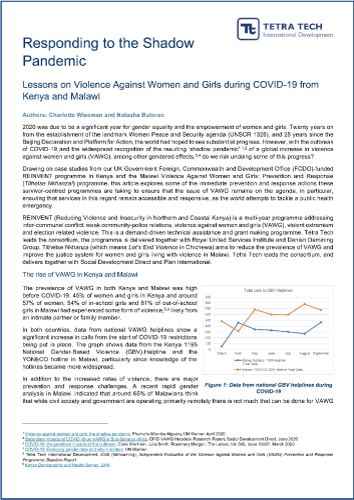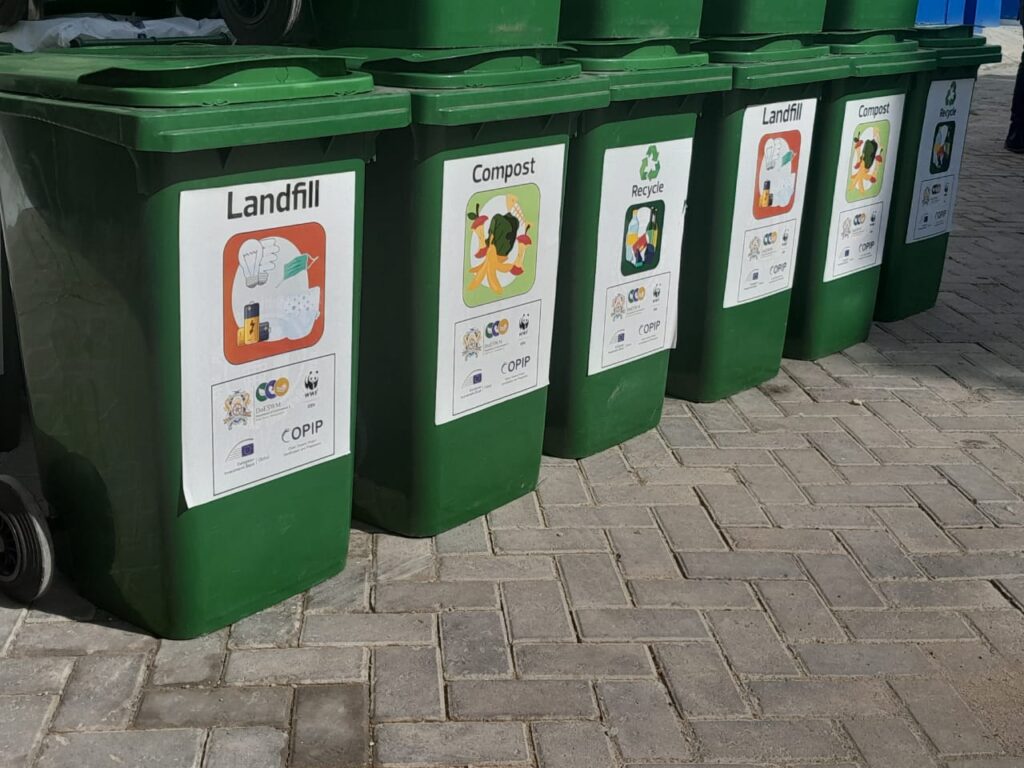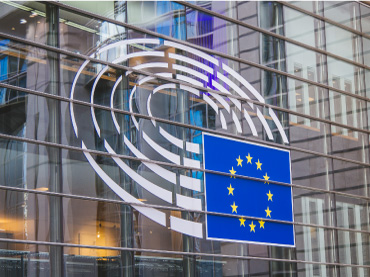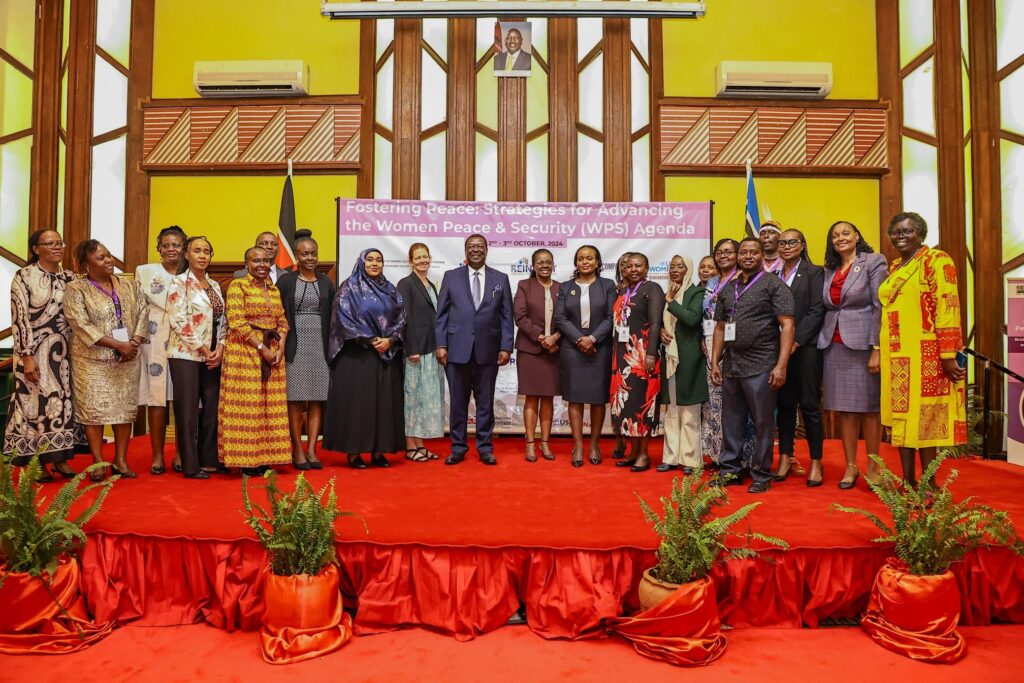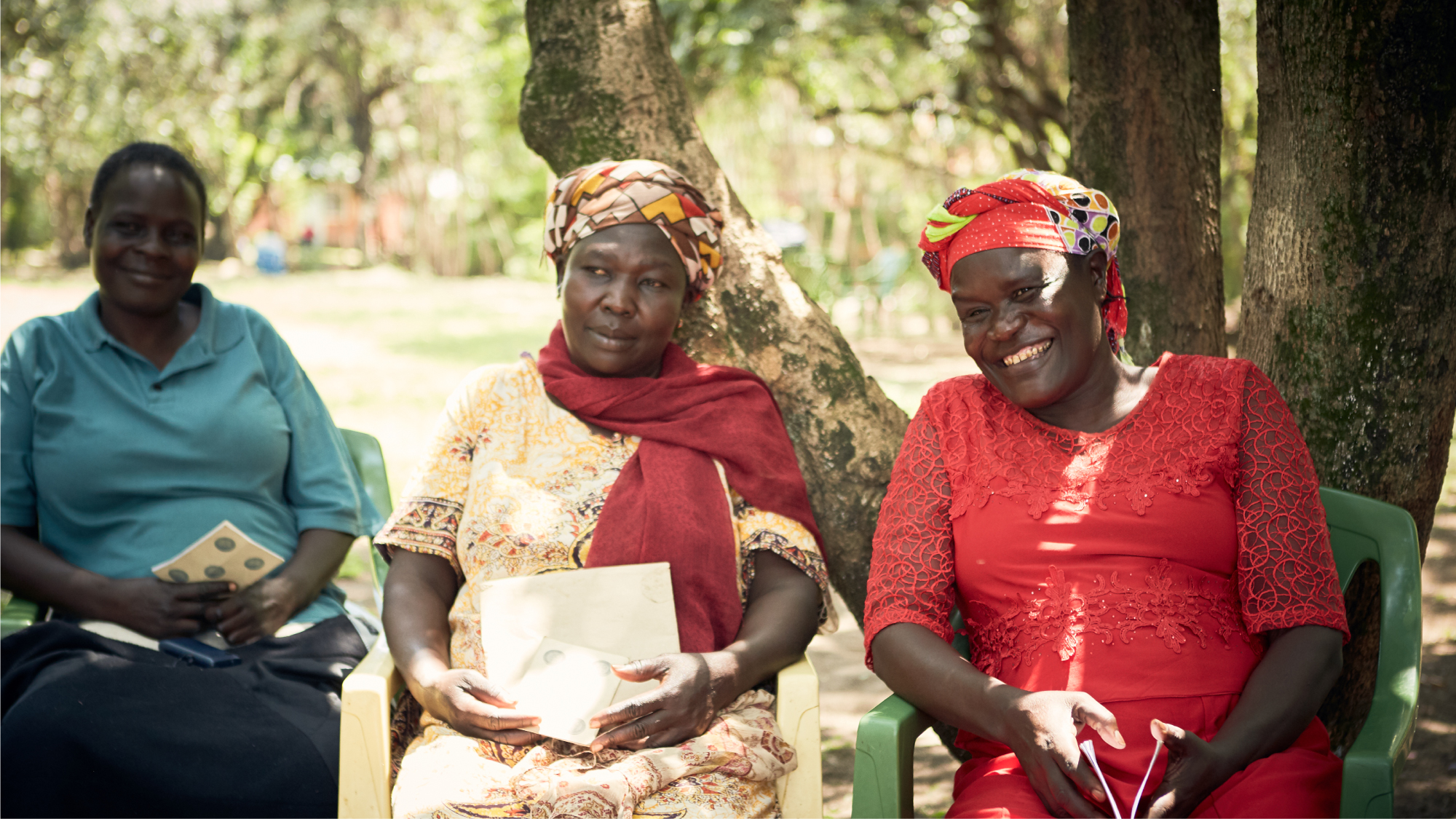
2020 was due to be a significant year for gender equality and the empowerment of women and girls. But as the coronavirus spread across the world, it brought with it another shadow pandemic: a global rise in violence against women and girls (VAWG).
On behalf of the the Foreign, Commonwealth and Development Office we deliver two programmes that address violence against women and girls: the Tithetse Nkhanza! Violence Against Women and Girls Prevention and Response Programme in Malawi, and the REINVENT programme in Kenya. Throughout 2020, both teams, their partners and associates have been closely monitoring this shadow pandemic to learn about its causes and impacts and to pivot the activities of the programmes in response to it.
To mark the International Day for the Elimination of Violence Against Women, we have produced this paper on the evidence and lessons that have emerged from both programmes’ work this year. Natasha Butorac (Tithetse Nkhanza!) and Charlotte Wiseman (REINVENT), from our Governance, Security & Justice practice worked with our gender specialists in Kenya and Malawi to document policy and programme responses put in place this year to ensure that the pandemic does not turn back the clock on the progress made on tackling violence against women. Drawing on the programmes’ learning from these experiences and the work of programme partners, key observations include:
- VAWG service providers should be considered essential services, to ensure continuity and protection of service delivery.
Governments need to recognise the uptick in VAWG with emergency funding. - Women – who make up a high proportion of informal workforces – need to have specific economic support, including short-term grants for small businesses run by women.
- There needs to be more awareness and behaviour change programming to prevent VAWG before it happens.
- Safety circles for the sharing of information, best practice and needs – whether virtual or physical – need support to continue or to be established.
Click on the image to read the paper in full.
Tithetse Nkhanza is implemented with Social Development Direct and Plan International.
REINVENT is implemented with the Royal United Services Institute and the Danish Demining Group.
